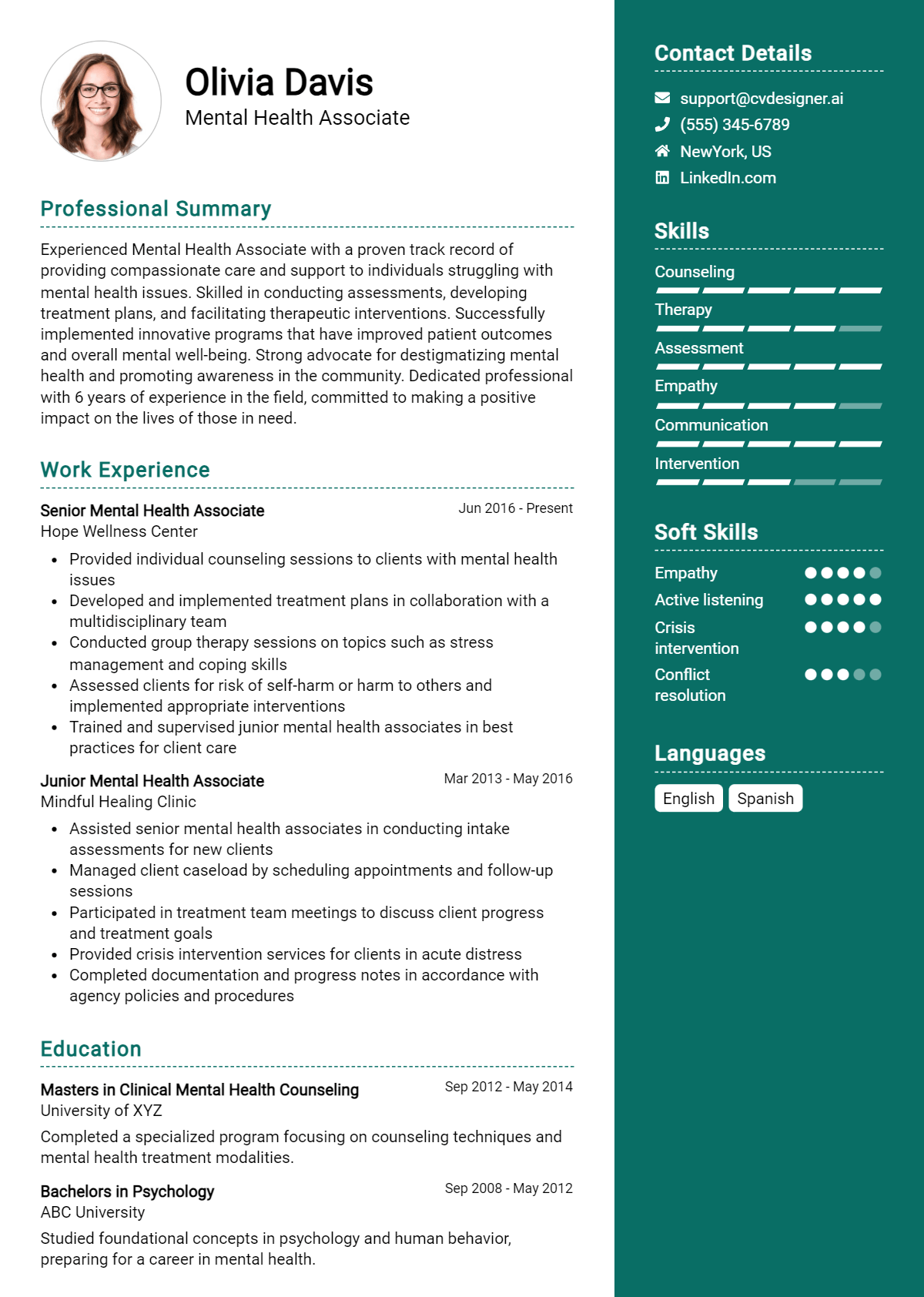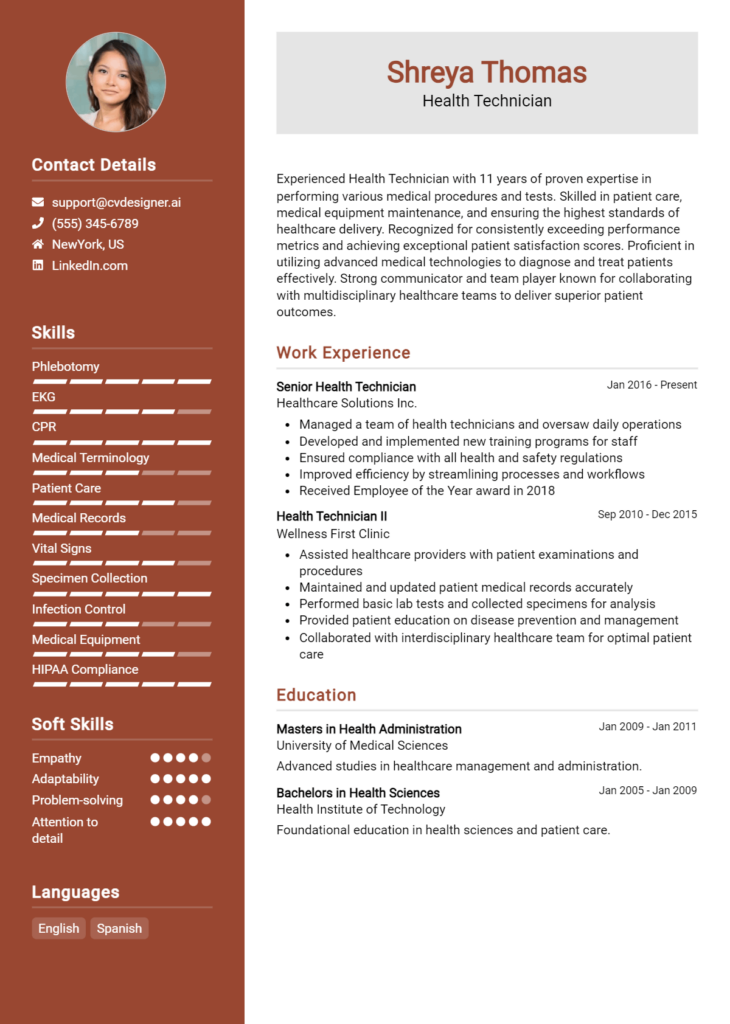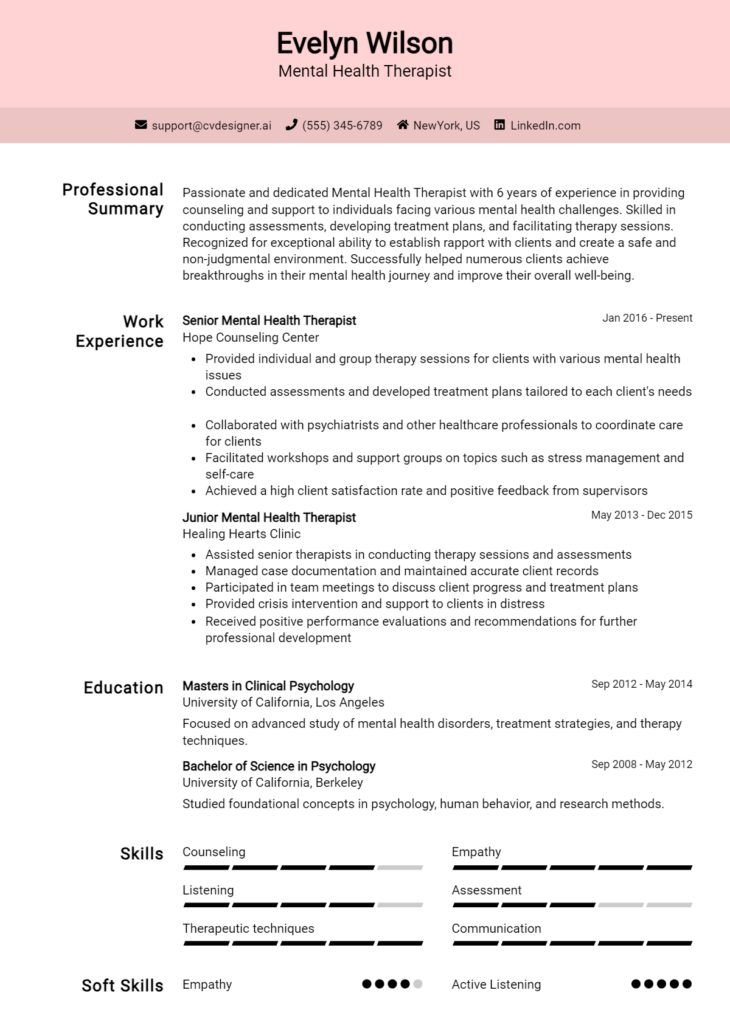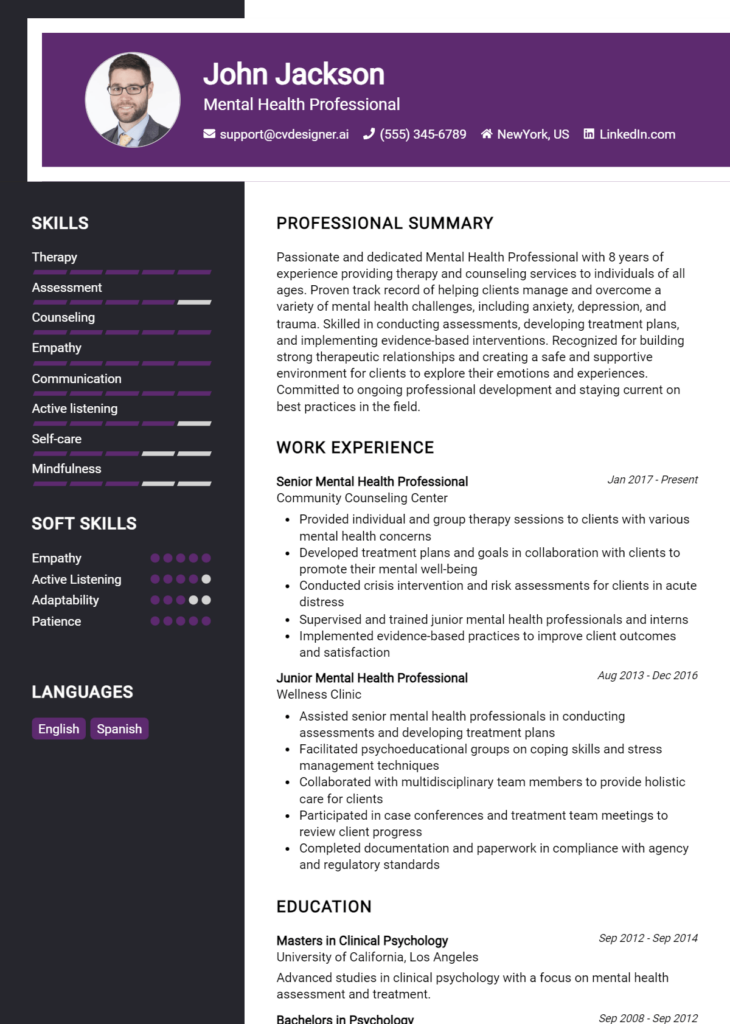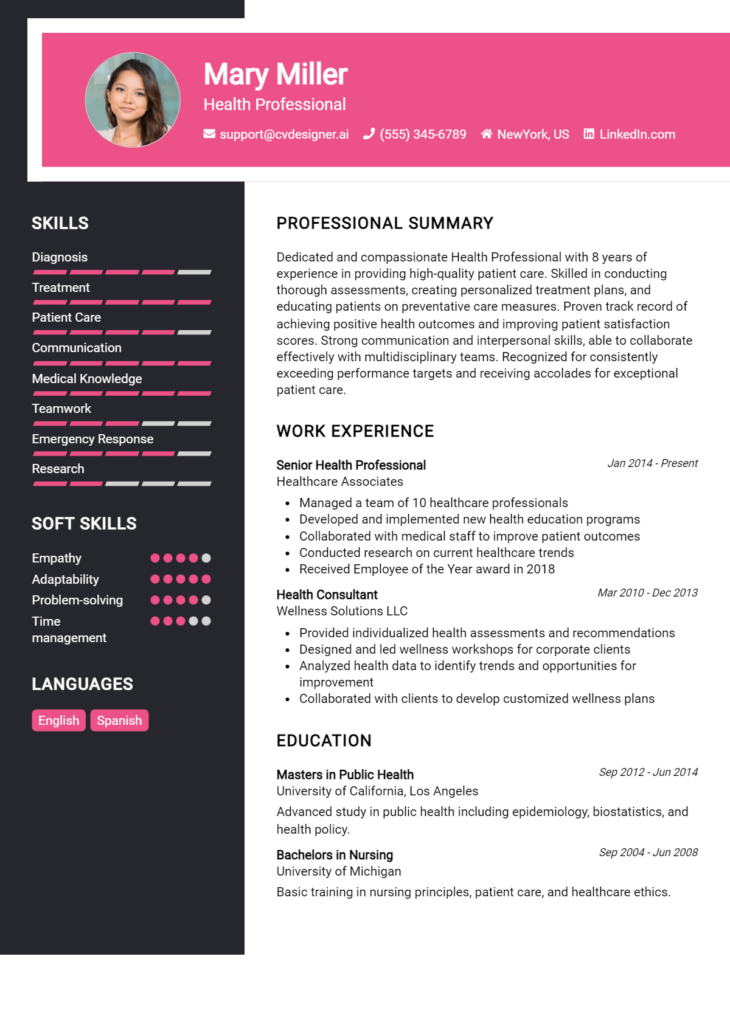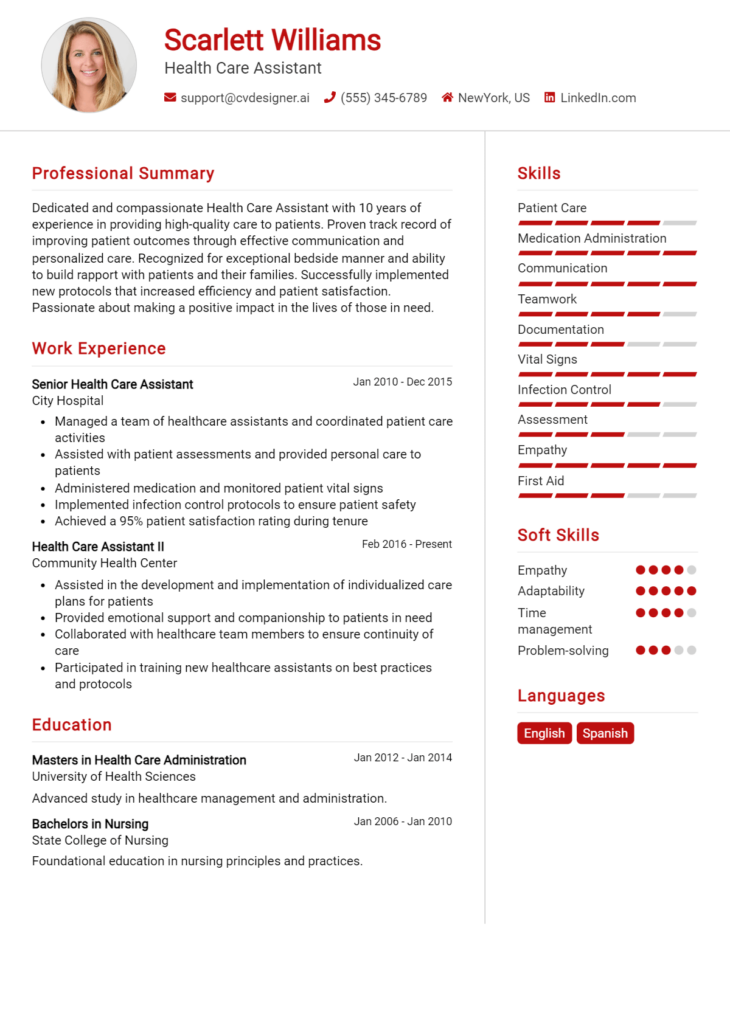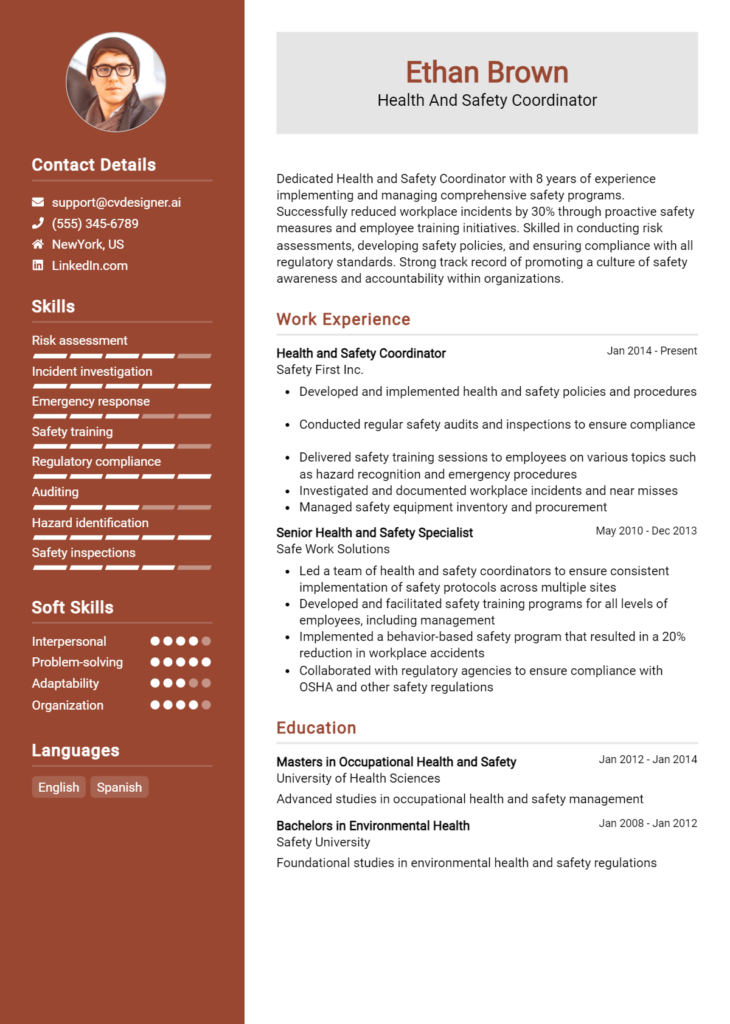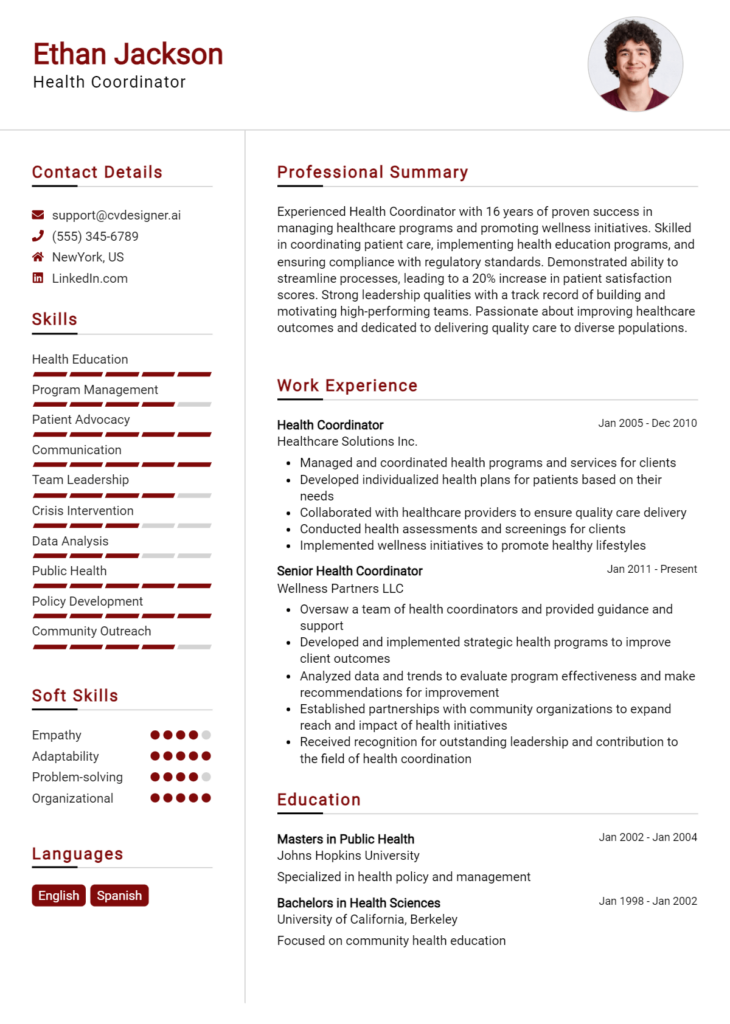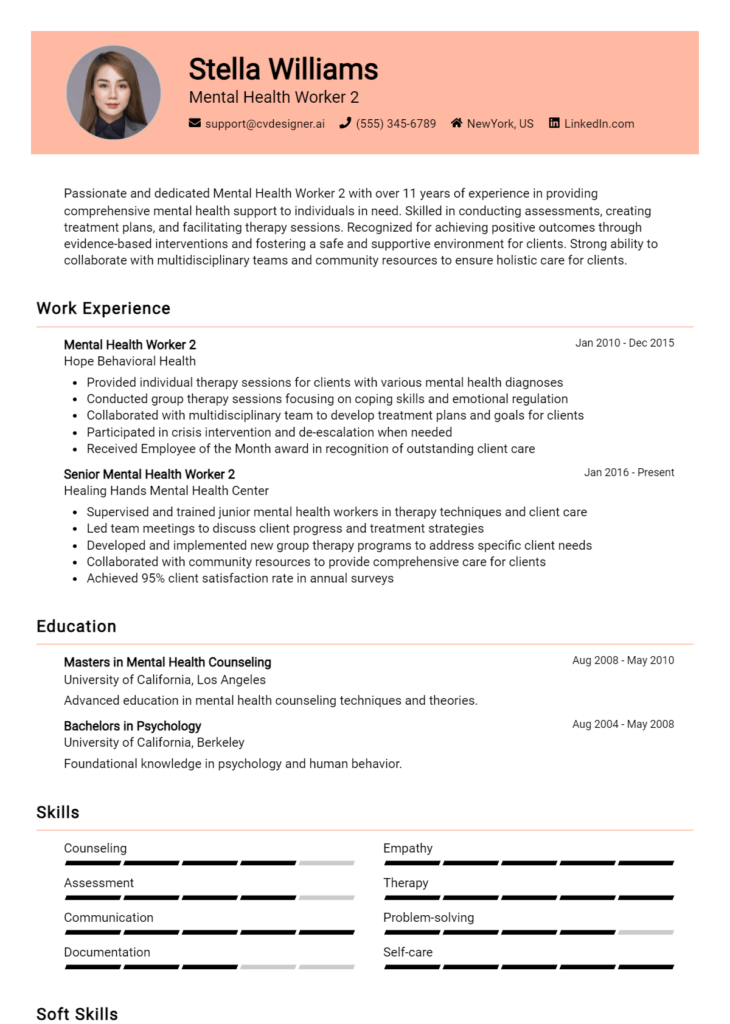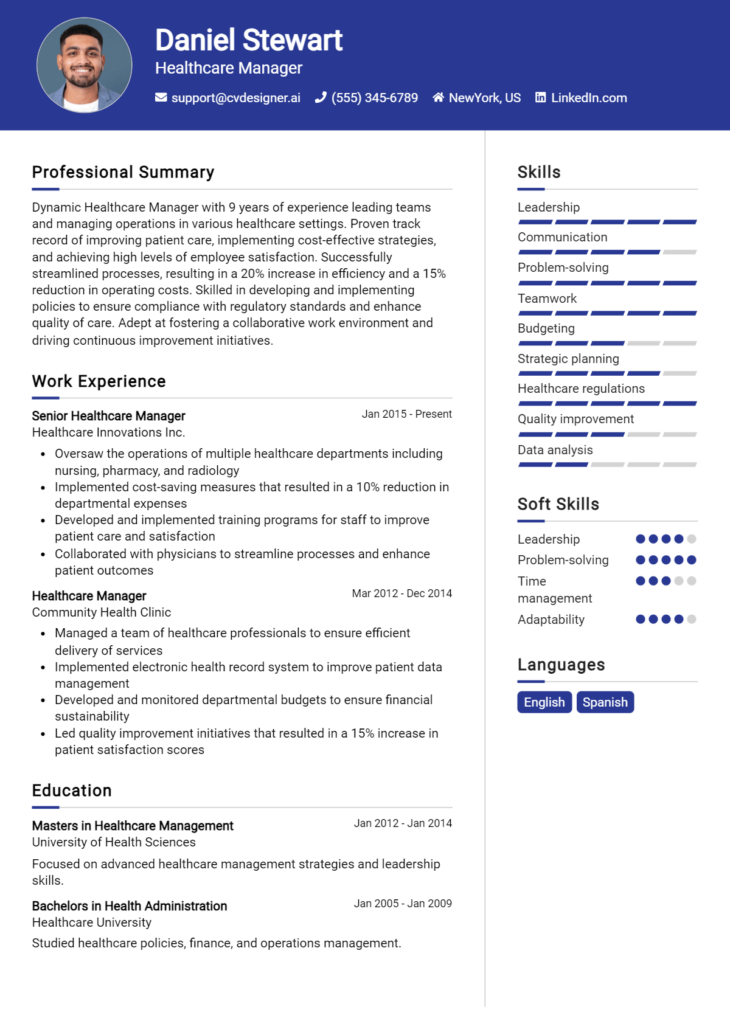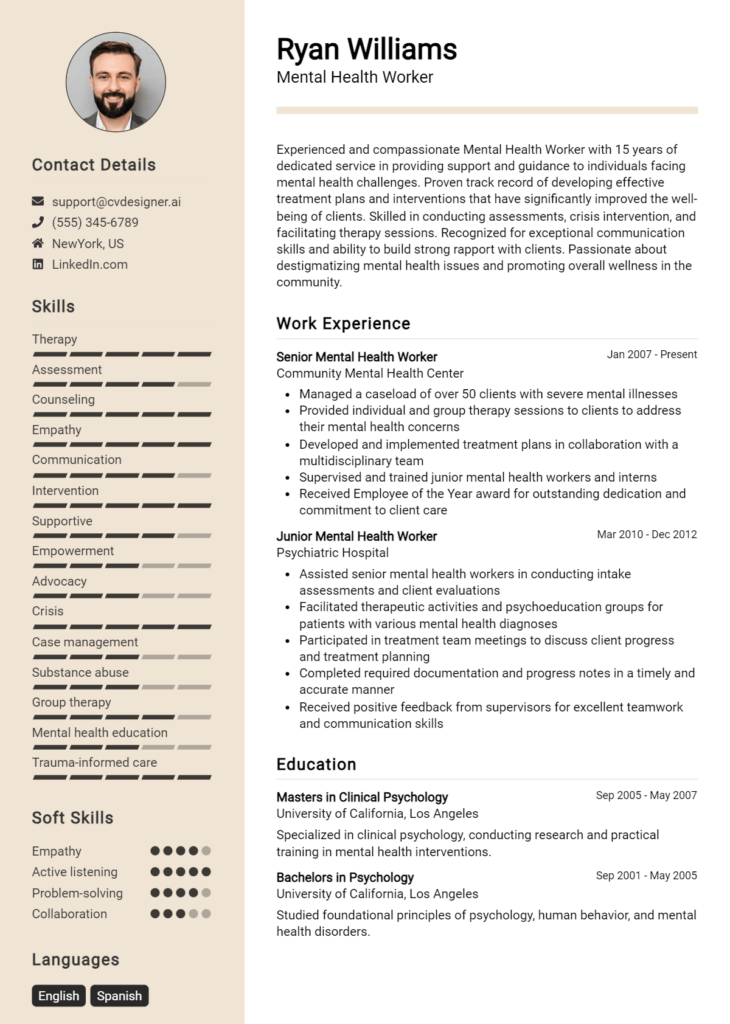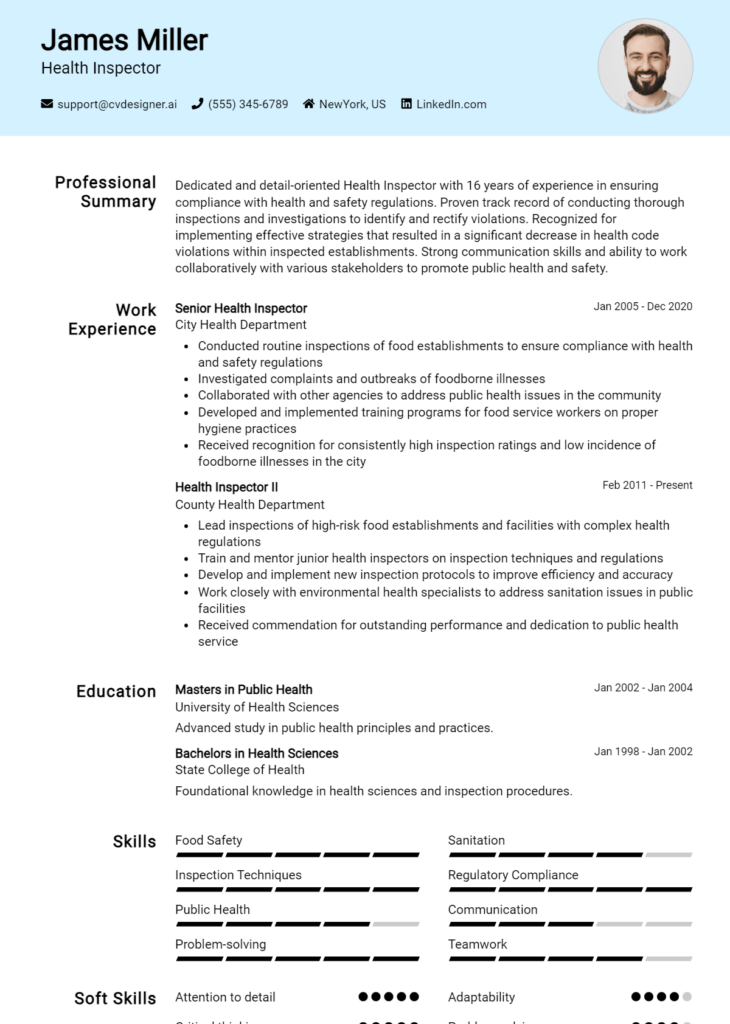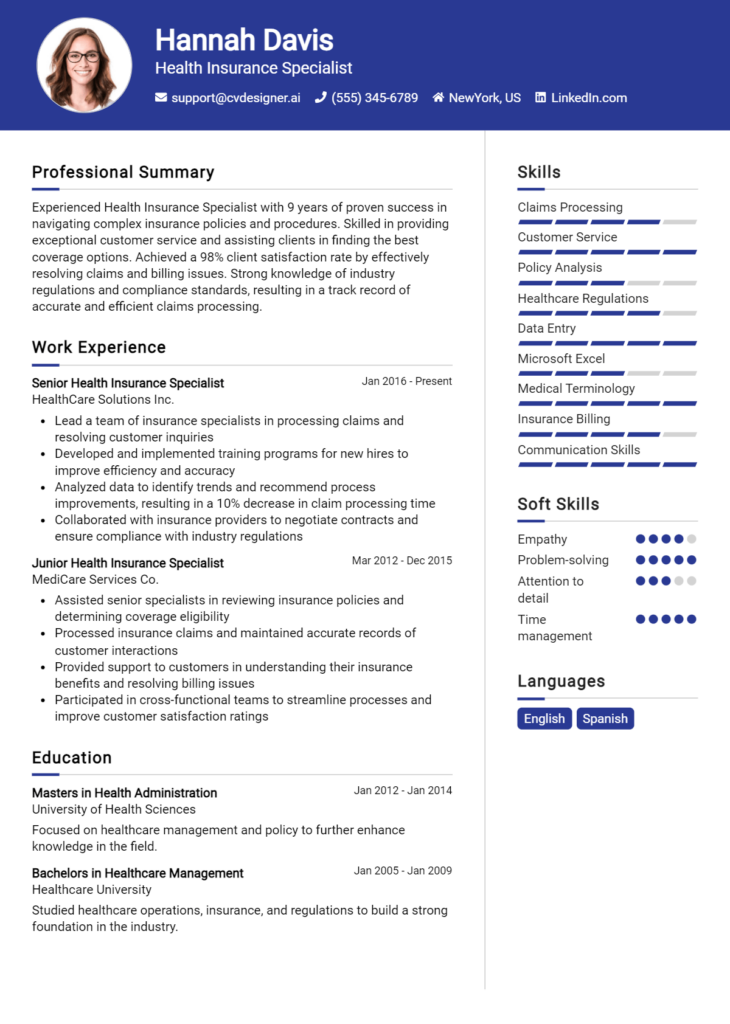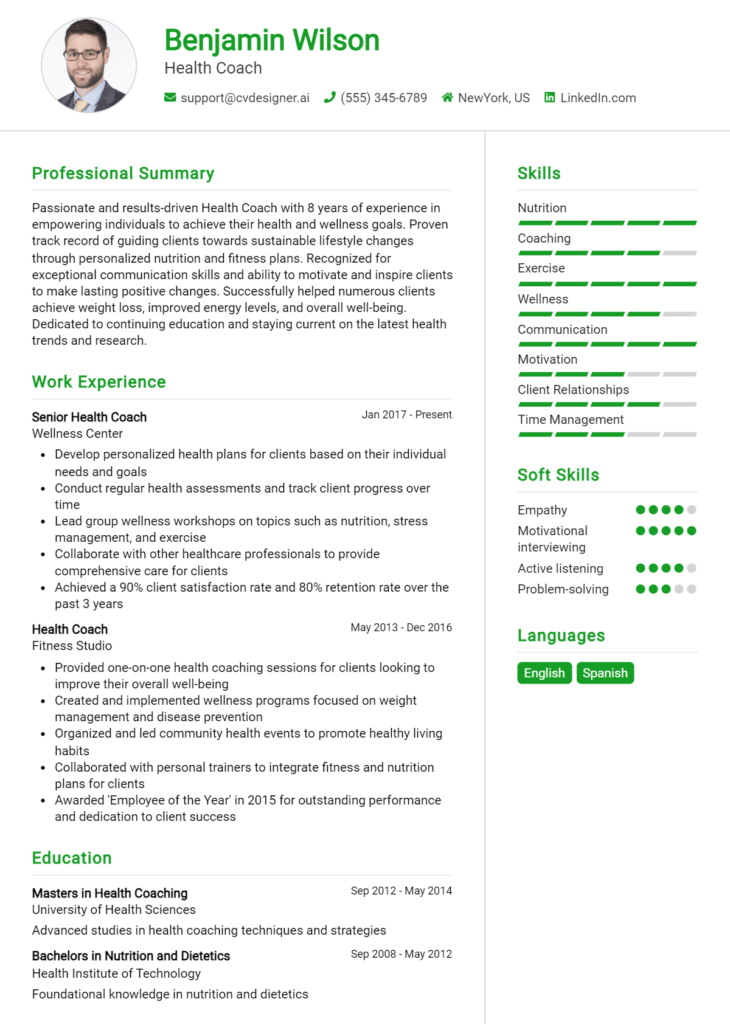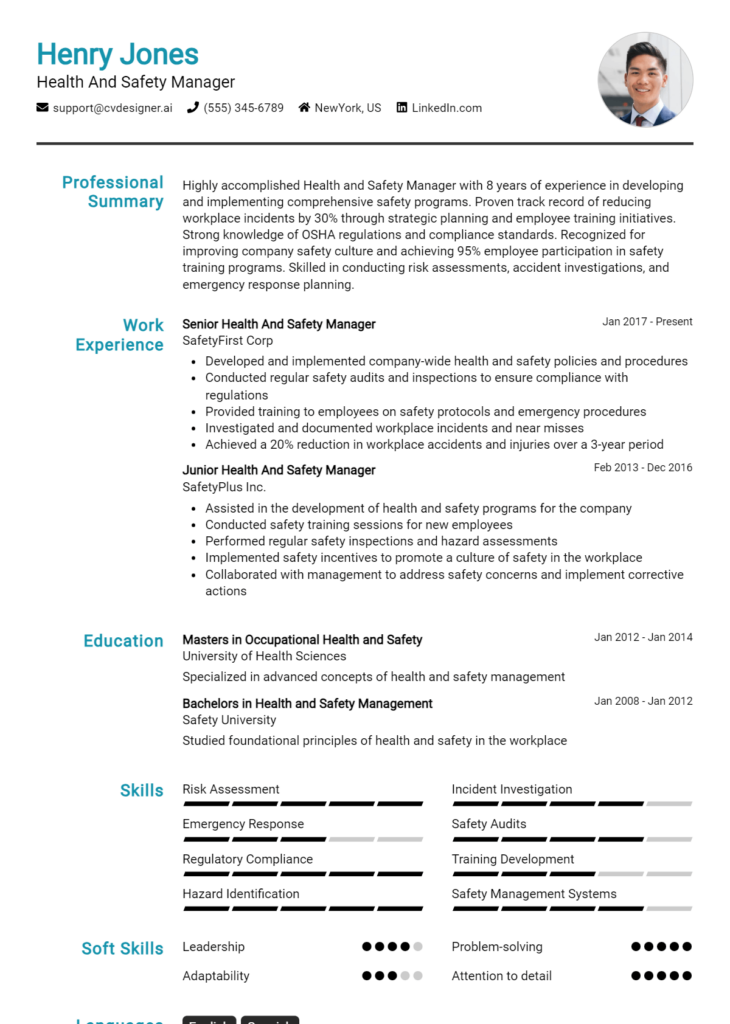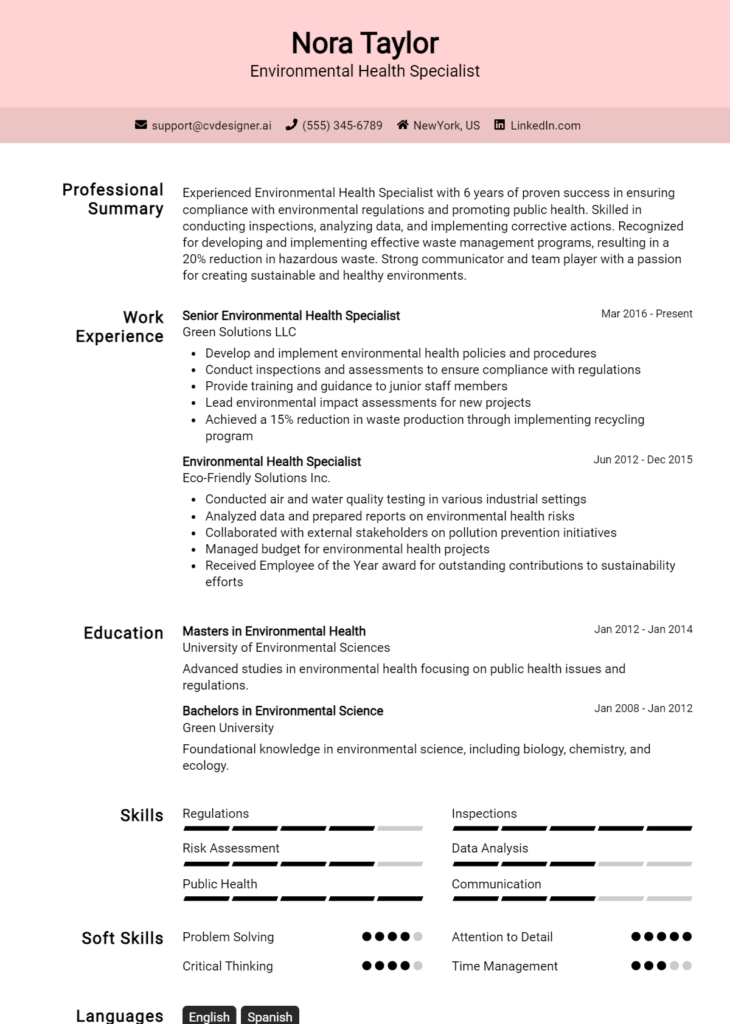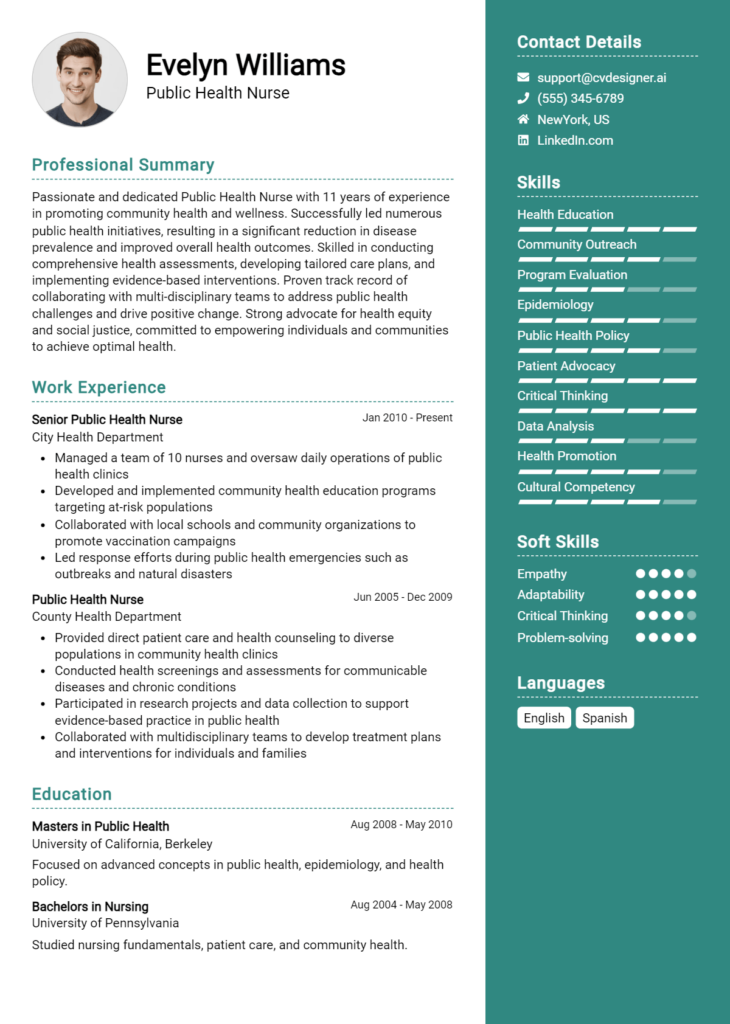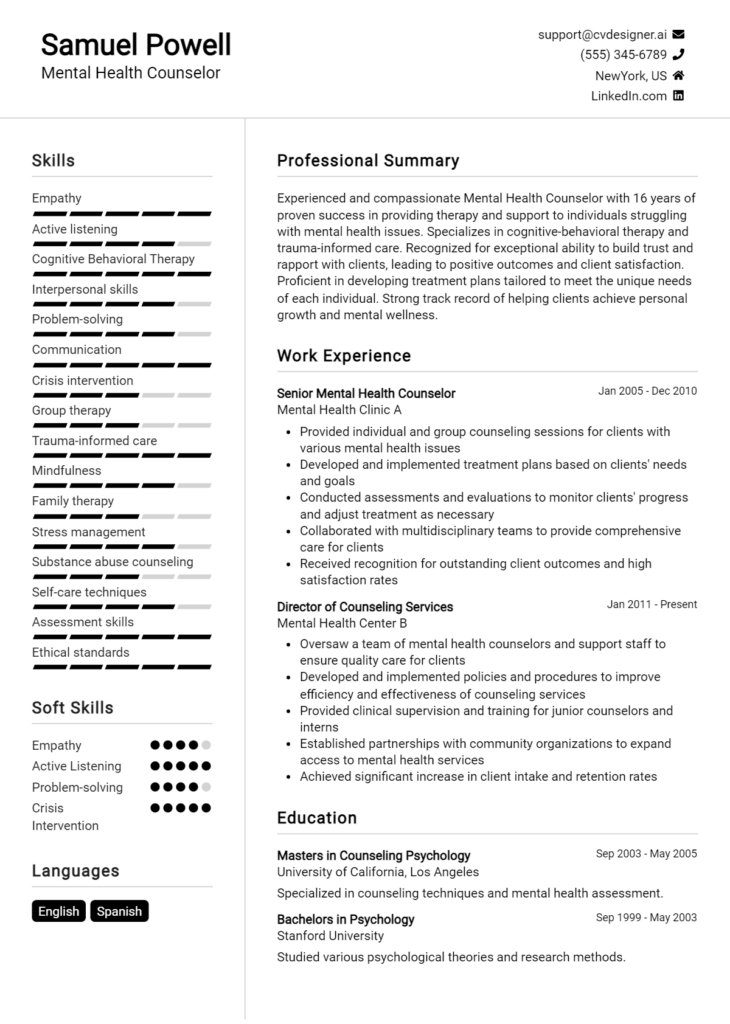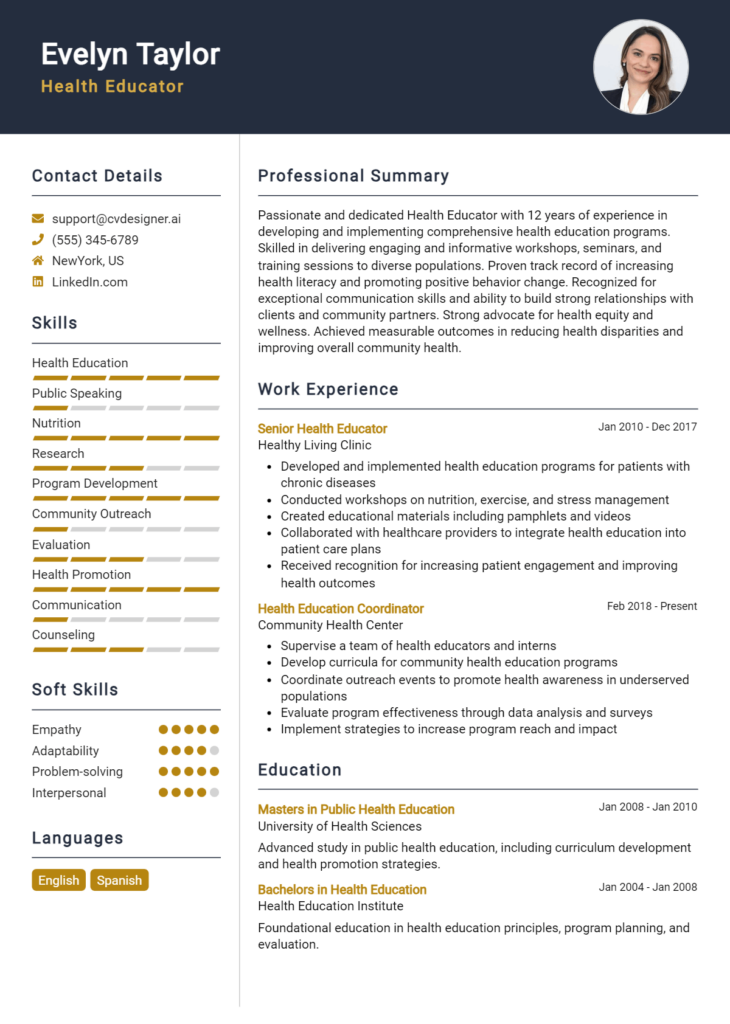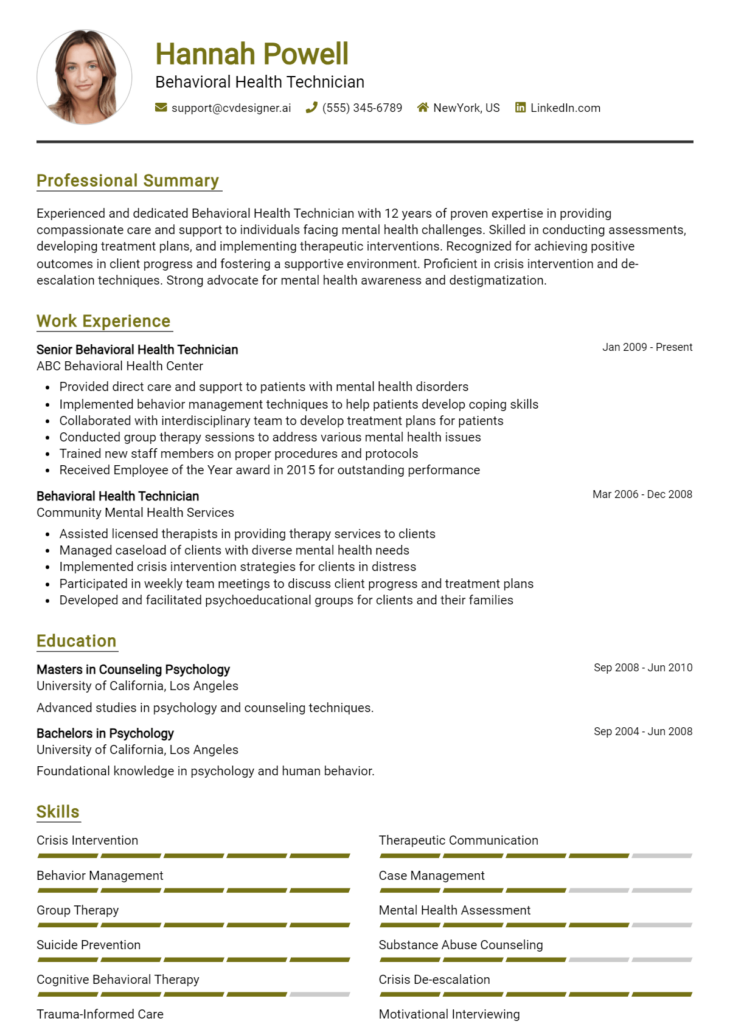Most Popular Mental Health Associate Resume Examples
Explore additional Mental Health Associate resume samples and guides and see what works for your level of experience or role.
As the demand for mental health services continues to rise, the role of a Mental Health Associate is more critical than ever. These dedicated professionals play a pivotal role in supporting individuals facing mental health challenges, working alongside therapists and medical staff to foster a therapeutic environment. Crafting a compelling resume is essential to stand out in this competitive field, as it not only showcases your qualifications but also reflects your commitment to enhancing the well-being of others. In this article, we will guide you through the ins and outs of writing an impactful resume tailored for the Mental Health Associate position, ensuring you present your skills and experiences in the best light possible.
We will cover a range of key points to help you create a standout resume. You'll learn about the core responsibilities and skills that hiring managers look for in Mental Health Associates, as well as the best formats to use to highlight your strengths effectively. We will also discuss common mistakes to avoid that could hinder your chances of landing an interview. Additionally, you can expect to find resume examples suited for all experience levels, practical tips on resume writing, and guidance on selecting the right resume templates to enhance your presentation. Whether you're just starting your career or looking to advance, this comprehensive guide will equip you with the tools you need to succeed in your job search.
Key Responsibilities and Skills for a Mental Health Associate
As a Mental Health Associate, your primary role involves supporting individuals with mental health challenges in their journey towards recovery and well-being. This position requires a compassionate approach and a solid understanding of mental health principles, as you will work closely with patients, families, and healthcare teams.
Key Responsibilities:
- Assist in the implementation of treatment plans under the supervision of licensed mental health professionals.
- Monitor and document patient behavior, mood changes, and progress in therapeutic activities.
- Facilitate group therapy sessions and assist in individual therapy as needed.
- Provide crisis intervention and support to patients in distress.
- Collaborate with healthcare staff to ensure the highest quality of care and support for patients.
- Educate patients and their families about mental health conditions and treatment options.
- Maintain accurate and confidential patient records in compliance with healthcare regulations.
Essential Skills:
- Strong communication and interpersonal skills.
- Empathy and active listening abilities.
- Crisis management and problem-solving skills.
- Knowledge of mental health disorders and treatment modalities.
- Ability to work collaboratively within a healthcare team.
- Strong observational skills to monitor patient behavior.
- Patience and resilience in challenging situations.
Effectively highlighting these skills in the resume skills section is crucial for standing out to potential employers. Tailoring these responsibilities and skills to align with the specific job description can significantly enhance your application. Consider how your experiences and abilities can be showcased in a strong CV, demonstrating not only your qualifications but also your passion for supporting mental health initiatives.
Best Resume Format and Structure for a Mental Health Associate
When crafting a resume for the role of a Mental Health Associate, it's essential to choose a format that presents your qualifications clearly and professionally. The most effective resume format is typically a reverse-chronological format, which highlights your most recent experiences and qualifications first. Here’s a detailed guide on how to structure your resume:
Contact Information
At the top of your resume, include your contact information clearly. This should consist of:
- Full Name
- Phone Number
- Email Address (professional)
- LinkedIn Profile (optional)
- Address (optional, city and state are often sufficient)
Professional Summary
Next, write a concise professional summary that encapsulates your experience and qualifications. This should be a 2-3 sentence overview focusing on:
- Your years of experience in mental health or related fields
- Key skills or specialties (e.g., crisis intervention, patient advocacy)
- A statement of your professional goals related to the position you are applying for
Work Experience
In this section, list your relevant work history in reverse chronological order. For each position, include:
- Job Title
- Company Name
- Location (City, State)
- Dates of Employment (Month/Year to Month/Year)
Use bullet points to describe your responsibilities and achievements, focusing on:
- Specific tasks related to mental health support (e.g., assisting patients with daily activities, conducting therapy sessions)
- Quantifiable accomplishments (e.g., reduced patient anxiety levels by X%)
- Any relevant collaborations with healthcare teams
Education
Detail your educational background, including:
- Degree(s) obtained (e.g., Bachelor’s in Psychology)
- Institution Name
- Graduation Date (Month/Year)
- Any relevant coursework or projects that relate to mental health
Skills
Create a section to highlight your relevant skills specifically tailored to the role of a Mental Health Associate. This can include:
- Interpersonal skills (e.g., empathy, active listening)
- Technical skills (e.g., knowledge of mental health software)
- Therapeutic techniques (e.g., cognitive-behavioral therapy principles)
Certifications
List any relevant certifications that enhance your qualifications, such as:
- Certified Mental Health Technician (CMHT)
- CPR and First Aid Certification
- Additional training relevant to mental health (e.g., Trauma-Informed Care)
Tips for Structuring Your Resume
- Keep your resume to one page, especially if you have less than 10 years of experience.
- Use a clean, professional font and ensure consistency in formatting (e.g., bullet points, spacing).
- Tailor each section to the job description to highlight the most relevant experiences and skills.
- Avoid using jargon or overly technical language; your resume should be understandable to HR personnel.
Complementing Your Cover Letter
The format of your resume should complement your cover letter. Use similar fonts and styles to create a cohesive look. Your cover letter can expand on the points made in your resume, providing personal anecdotes or deeper insights into your passion for mental health. Ensure that both documents reflect your personality and professionalism, reinforcing your suitability for the Mental Health Associate role.
By following this structured guide, you will create a compelling resume that effectively communicates your qualifications and readiness for the position of Mental Health Associate.
Writing Tips and Best Practices for a Mental Health Associate Resume
When crafting a resume for a Mental Health Associate position, it's crucial to present your skills and experiences in a clear and compelling manner. Highlight your relevant qualifications, such as educational background, certifications, and practical experience in mental health settings. Use action verbs to convey your accomplishments effectively and ensure that you quantify your achievements wherever possible, as this provides tangible evidence of your impact. Incorporating industry-specific keywords will help your resume stand out to hiring managers and applicant tracking systems. Additionally, leveraging resume writing tips can enhance the professional appearance of your resume, making a strong first impression. Remember, these best practices also apply to drafting an effective cover letter, which should complement your resume by providing deeper insights into your qualifications and passion for mental health.
- Use action verbs such as "assisted," "facilitated," and "collaborated" to describe your responsibilities.
- Quantify your achievements by including metrics, such as the number of clients served or improvement in patient outcomes.
- Incorporate industry-specific keywords such as "evidence-based practices," "patient care," and "crisis intervention."
- Tailor your resume for each job application to align with the specific requirements of the position.
- Include relevant certifications and training, such as CPR, Mental Health First Aid, or specific therapeutic techniques.
- Keep your resume concise, ideally one page, focusing on the most relevant experiences and skills.
- Use bullet points for clarity and readability, making it easier for hiring managers to scan your qualifications.
- Ensure consistent formatting and professional design to enhance the overall presentation of your resume.
Common Mistakes to Avoid in a Mental Health Associate Resume
Crafting a compelling resume for a Mental Health Associate position requires careful attention to detail and a clear presentation of relevant skills and experiences. Unfortunately, many candidates make common mistakes that can undermine their chances of landing an interview. By avoiding these pitfalls, you can enhance the impact of your resume and better showcase your qualifications in the mental health field. Here are some of the most frequent mistakes to watch out for:
- Overloading your resume with excessive information, making it difficult for hiring managers to identify key qualifications.
- Using generic job descriptions that fail to highlight your specific contributions and achievements.
- Failing to tailor your resume for each application, resulting in a lack of relevance to the job posting.
- Neglecting to include measurable outcomes or specific examples of your successes in previous roles.
- Using inconsistent formatting, which can create a disorganized appearance.
- Leaving out important keywords relevant to the mental health field, which may reduce your visibility in applicant tracking systems.
- Including outdated or irrelevant work experience that does not pertain to the role of a Mental Health Associate.
- Ignoring the importance of proofreading for spelling and grammatical errors, which can detract from your professionalism.
- Focusing solely on duties rather than emphasizing your impact and the skills you developed.
- Underestimating the significance of a strong summary statement that clearly communicates your career objectives and qualifications.
To further refine your resume and avoid these errors, consider reviewing the common mistakes to avoid in a resume. Additionally, ensure that your cover letter complements your resume by steering clear of common cover letter mistakes that can hinder your application.
Sample Mental Health Associate Resumes
As a Mental Health Associate, your role plays a crucial part in supporting individuals facing mental health challenges. This position requires a combination of compassion, communication skills, and a solid understanding of mental health practices. To help you craft a standout resume, we’ve provided three sample resumes tailored for different experience levels: an experienced professional, an entry-level candidate, and a career changer. These examples will guide you in highlighting your unique qualifications and experiences.
Experienced Professional Resume
Jane Doe
123 Mindful Lane, Wellness City, ST 12345
(555) 123-4567
janedoe@email.com
Objective
Dedicated Mental Health Associate with over 7 years of experience in providing compassionate care and support to individuals with various mental health disorders. Seeking to leverage expertise in crisis intervention and therapeutic support to enhance patient outcomes at XYZ Mental Health Services.
Professional Experience
Mental Health Associate
ABC Behavioral Health, Wellness City, ST
January 2017 – Present
- Provided direct care and support to a diverse population of patients with mental health diagnoses, including depression, anxiety, and schizophrenia.
- Collaborated with a multidisciplinary team to develop and implement individualized treatment plans.
- Conducted assessments and monitored patient progress, adjusting care plans as necessary.
- Facilitated group therapy sessions, promoting social skills and coping strategies among participants.
Mental Health Technician
DEF Psychiatric Hospital, Wellness City, ST
June 2015 – December 2016
- Assisted in daily living activities for patients, ensuring a safe and supportive environment.
- Engaged patients in therapeutic activities to enhance their mental well-being.
- Documented patient behaviors and communicated observations to the clinical team.
Education
Bachelor of Arts in Psychology
University of Wellness, Wellness City, ST
Graduated May 2015
Certifications
- CPR and First Aid Certified
- Mental Health First Aid Certified
Entry-Level Candidate Resume
John Smith
456 Hope Street, Healing Town, ST 54321
(555) 987-6543
johnsmith@email.com
Objective
Motivated and compassionate recent graduate seeking an entry-level Mental Health Associate position at ABC Behavioral Health. Eager to apply knowledge of psychological principles and hands-on experience from internships to support individuals in their mental health journeys.
Education
Bachelor of Science in Psychology
University of Healing, Healing Town, ST
Graduated May 2023
Relevant Experience
Intern, Mental Health Services
GHI Community Health Center, Healing Town, ST
January 2023 – May 2023
- Assisted licensed therapists in conducting patient assessments and developing care plans.
- Observed and participated in group therapy sessions, gaining insight into therapeutic techniques.
- Provided administrative support, including managing patient records and scheduling appointments.
Volunteer, Crisis Hotline
JLK Crisis Support, Healing Town, ST
September 2022 – December 2022
- Offered empathetic listening and support to individuals in crisis, helping them navigate resources.
- Completed training in crisis intervention and active listening techniques.
Skills
- Strong communication and interpersonal skills
- Familiarity with mental health concepts and treatment modalities
- Proficient in Microsoft Office Suite
Career Changer Resume
Emily Johnson
789 Recovery Road, Support City, ST 67890
(555) 321-0987
emilyjohnson@email.com
Objective
Former social worker transitioning to a Mental Health Associate role, bringing 5 years of experience in case management and client advocacy. Passionate about applying a holistic approach to mental health support at XYZ Mental Health Services.
Professional Experience
Social Worker
MNO Family Services, Support City, ST
June 2018 – Present
- Managed a caseload of 30+ families, providing resources and support for mental health and social service needs.
- Developed individualized service plans and coordinated care with community resources.
- Conducted home visits and assessments to identify client needs and progress.
Customer Service Representative
PQR Corporation, Support City, ST
March 2015 – May 2018
- Provided exceptional customer service and resolved client inquiries, honing communication skills.
- Trained new employees on best practices for client interaction and conflict resolution.
Education
Bachelor of Social Work
University of Support, Support City, ST
Graduated May 2018
Certifications
- Certified Social Worker (CSW)
- CPR and First Aid Certified
For further inspiration, explore more resume templates. Additionally, don't forget to check out corresponding cover letter examples to create a complete job application package.
Checklist for a Mental Health Associate Resume
- Proofread for Errors: Carefully read through your resume to catch any spelling, grammar, or punctuation mistakes. Consider reading it aloud or having someone else review it for a fresh perspective.
- Consistent Formatting: Ensure that your font style, size, and spacing are consistent throughout the document. Use the same bullet points and alignment for a polished look.
- Tailor to the Job Description: Modify your resume to emphasize skills and experiences that are directly relevant to the Mental Health Associate position you are applying for. Highlight keywords from the job posting.
- Clear and Concise Language: Use straightforward language and avoid jargon. Keep descriptions brief and focused on your achievements and responsibilities.
- Relevant Skills Section: Include a dedicated skills section that highlights both hard and soft skills pertinent to mental health support, such as communication, empathy, and crisis intervention.
- Quantify Achievements: Where possible, quantify your accomplishments (e.g., "Assisted in reducing patient anxiety levels by 30% through tailored therapy sessions") to provide a clearer picture of your impact.
- Professional Experience Order: List your work experience in reverse chronological order, starting with your most recent position. This makes it easier for employers to see your career progression.
- Contact Information: Double-check that your contact information is current and correctly formatted, including your phone number, email address, and LinkedIn profile if applicable.
- Use an AI Resume Builder: Consider utilizing an AI resume builder to ensure all elements are well-organized and visually appealing.
- Adapt for CV and Cover Letter: Remember that a similar checklist can be followed for creating a CV or cover letter to maintain professionalism and coherence across all your application materials.
Key Takeaways for a Mental Health Associate Resume Guide
In conclusion, crafting a strong resume as a Mental Health Associate is crucial for making a positive first impression on potential employers. By leveraging the examples and tips provided, you can effectively showcase your skills, experiences, and passion for mental health care. To take the next step in your job application journey, consider downloading a tailored template from our resume templates or explore our cover letter templates to enhance your application materials. For an even more personalized approach, utilize our best resume maker to create a standout resume that aligns with your unique qualifications. Remember, following similar guidelines will also assist you in crafting a compelling CV and cover letter, ensuring you present yourself as a strong candidate in the competitive field of mental health.
